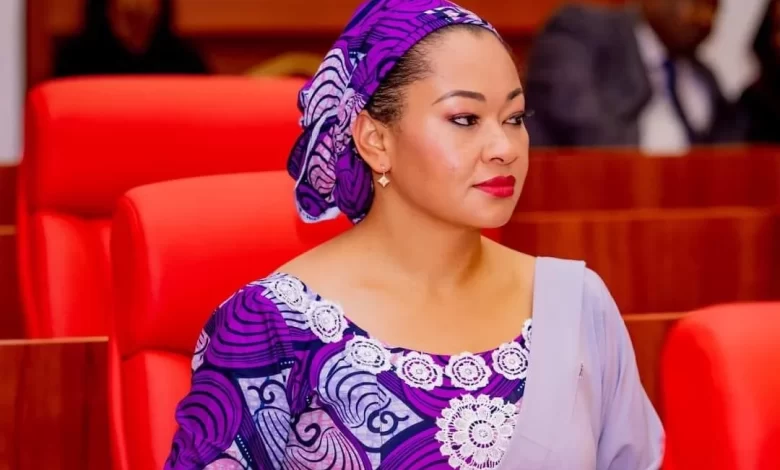
The political and legal saga surrounding Nigerian Senator Natasha Akpoti-Uduaghan has reached a contentious milestone, as the Federal High Court in Abuja ruled in her favour, ordering her reinstatement after a six-month suspension from the Senate.
However, the court also imposed sanctions on the senator, highlighting the high cost of speaking out against entrenched power structures in Nigerian politics.
On Friday, July 4, 2025, the court deemed the Senate’s suspension of Akpoti-Uduaghan—imposed after she accused Senate President Godswill Akpabio of sexual harassment—“excessive” and in violation of the constitutional rights of her Kogi State constituents.
The judge ruled that the punishment was disproportionate and deprived citizens of representation in the upper chamber.
However, the court stopped short of a full exoneration. Senator Akpoti-Uduaghan was ordered to pay a fine of five million naira (approximately €2,760) for breaching a court-imposed gag order prohibiting her from commenting on the case.
The violation stemmed from a satirical post she made on social media, in which she wrote, “please find it in your heart to forgive a woman who wrongly believed she won her seat through elections, not erections.”
In addition to the fine, she is required to publish formal apologies in two national newspapers and across her social media platforms within a week.
The controversy began when Akpoti-Uduaghan publicly accused Akpabio of inappropriate advances, triggering a political firestorm.
She further claimed that her suspension was a smokescreen to punish her for speaking out, and accused Akpabio and former Kogi State Governor Yahaya Bello of orchestrating a plot to harm her—allegations that have sparked a separate legal investigation.
Public opinion remains divided. While civil society groups and some women’s rights organisations have voiced support for Akpoti-Uduaghan, the political establishment has responded with ambivalence.
First Lady Oluremi Tinubu downplayed the allegations, stating, “compliments are common and nothing serious,” a remark that drew sharp criticism for trivialising harassment.
Akpoti-Uduaghan’s case has shone a harsh light on the challenges faced by female politicians in Nigeria’s overwhelmingly male political landscape.
Of the 109 senators, only four are women—underscoring what many see as a deep-rooted culture of exclusion and sexism within the nation’s corridors of power.
Though reinstated, Akpoti-Uduaghan’s legal victory is laced with irony: a woman punished for daring to speak, and only partially vindicated for doing so.
Her battle may be far from over, but it has undeniably reignited debate over gender, power, and accountability in Nigerian politics.



